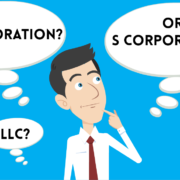The Difference Between Business As Usual And Bankruptcy. Here Are Two Ohio Laws That All Business Owners Must Know!
Every business and every business owner should be aware if and how the Consumer Sales Protection Act (“CSPA”) and/or the Home Solicitation Sales Act (“HSSA”) effects their business. On the first day of law school, every new law student learns that ignorance of the law is no defense. The same applies to business owners. In the context of CSPA or HSSA violations, being unaware of the law, which in turn leads to noncompliance of the law, can open you up to thousands of dollars in damages, discretionary rescission of expensive contracts, and ruin your hard-earned professional reputation. The CSPA and HSSA are lengthy statutes which cover a multitude of business and scenarios and, as such, require an experienced hand to walk you through all the wrinkles and hurdles. If your personal knowledge of these statutes is lacking, never hesitate to contact an experienced Cleveland business attorney. A little forethought now, can save you a whole lot later.
- What is the CSPA and HSSA?
The Ohio CSPA is located under Chapter 1345 of the Ohio Revised code. In a nutshell, the CSPA prohibits “suppliers” from committing unfair or deceptive acts or practices in connection with a “consumer transaction.” Naturally who is and is not a “supplier” and what is or is not a “consumer transaction” under the CSPA are pivotal first points of analysis. Further, the CSPA does not stand alone. The CSPA works in conjunction with Ohio’s HSSA. Again, to simplify everything, the CSPA is a list of things considered unfair or deceptive acts or practices and denotes potential avenues for redress of legal grievances for harmed customers. On top of the CSPA, the HSSA also provides an additional list of things considered unfair or deceptive acts or practices and denotes potential avenues for redress of legal grievances for harmed customers but with slightly different triggering circumstances, i.e. the existence of a home solicitation sale, hence the name, and different recovery options for customers.
- Why should business owners care about the CSPA and HSSA?
Many businesses and industries are subject to the laws and requirements of the CSPA and HSSA without even knowing it. Thus, these businesses are running around selling services and completing jobs all the while exposing themselves to massive amounts of potential liability. Remember, ignorance of the law is no defense and all it takes is one persnickety consumer to ruin your whole fiscal year and eat all your profits through litigation.
In the context of home improvement, residential contractors, HVAC, roofers, electricians, landscapers, concrete work, repairs companies, and other home sale situations, to name only few, if a company has committed an unfair and deceptive trade practice, a consumer often has 1) the right to cancel the agreement, 2) receive a full refund, and 3) depending on the circumstances may not even have to return any materials or pay for any labor already performed.
The CSPA includes a non-exclusive list of specific acts and practices that are conclusively “unfair and deceptive” and therefore violate Ohio law. The CSPA, via the HSSA, also includes specific “home solicitation sale” remedies, one of which includes a statutory right to a three-day right to cancel period when the contract is signed at the consumer’s residence. Every seller must notify the buyer of his or her right to cancel the sale and provide the buyer with a “Notice of Cancellation” form that the buyer can use to cancel the sale, both the notice and the form to cancel have specific statutory requirements. If the supplier fails to include notice and proper language regarding this 3-day right in the contract or use the proper forms, consumers are entitled to cancel their agreement whenever they wish because the 3-day timer never started. Courts have said in these situations that the right to cancel never expired, even many years after the job was done. Only following the law by delivering proper documents does a supplier start the clock. In turn, this allows homeowners to bring a claim for a refund or to get out of paying money owed on a contract well after the two-year statute of limitations under the CSPA has run out.
- Recent changes in the CSPA and HSSA.
As previously stated, the CSPA and HSSA together represent a list of unfair and deceptive trade practices which often triggers liability for the offending company. Ohio Senate Bill 227, which became effective on April 6, 2017, added a new practice to this list that is conclusively violative, as in if you do it, legally there is no discussion over whether it was “unfair and deceptive” under the CSPA, it just is. This new violation is:
“[T]he failure of a supplier to obtain or maintain any registration, license, bond, or insurance required by state law or local ordinance for the supplier to engage in the supplier’s trade or profession is an unfair or deceptive act or practice.”
In short, under current Ohio law, even the most careful and observant supplier can violate the CSPA/HSSA by failing to timely renew any registration, license, bond, or insurance that the supplier is required to maintain under state or local law. As such, ignorance can no longer be the standard operating procedure for services such as HVAC, electrical, plumbing or refrigeration work, and other suppliers of home services. Further, for businesses who use outside contractors or other temporary workers, the risk is even more severe. Now you must be sure not only are you and your employees bonded and licensed, but any contractors have the proper paper work as well, even though technically, they are not your employees. Often courts find the burden is on the business to make due diligence and ensure compliance, responsibility must fall somewhere, and it sure isn’t going to fall on the consumer.
Furthermore, albeit a more minor change, Senate Bill 227 also updates the Notice of Cancellation requirements under the HSSA to include fax or e-mail options, which the supplier must provide. In turn, the customer/buyer can now cancel the sale by delivering the Notice of Cancellation “in person or manually” or by “facsimile transmission or electronic mail” to the seller. As such, even a minor oversight such as not including fax or e-mail cancellations options on standard forms can open up a world of litigation pain on an unknowing business.
A law without consequences is a paper tiger. You may ask yourself, who cares if technically my business engages in unfair or deceptive acts or practices. Well, for CSPA and HSSA violations, often customers are entitled to triple damages and attorney’s fees, good for them, bad for business owners. No stretch of the imagination to see a couple of CSPA/HSSA lawsuits can kill a profitable business real quick. Notice, under Ohio law it doesn’t matter if failure of compliance was willful or inadvertent, the only thing that matters is did you break the law. This is why it is important to maintain a good and ongoing relationship with a local Cleveland business attorney. Often the legal requirements for local business are buried deep within local ordinances and administrative code. Remember, what you don’t know can hurt you and, just like everything else with a business, it is on owners to stay current, but most especially, compliant with any recent changes in Ohio law.










